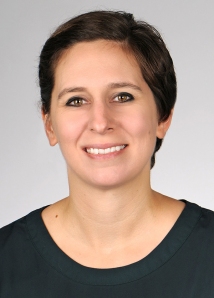Who: Alexis Nagel, PhD, Research Instructor, MUSC College of Nursing
Where: Medical University of South Carolina, Charleston, SC
Number of Years in RD: 4 (Officially)
Length of NORDP Membership: 3
What’s your history in RD? When and how did you enter the field? What kind of RD work do you do?
I transitioned from the bench to RD in 2016. Towards the end of my postdoc tenure I knew that I no longer wanted to pursue a traditional academic career; around the same time, I started working with a senior faculty member who needed a great deal of help preparing and submitting federal grants. It was then that I discovered untapped skills in grant writing as well as an affinity for this type of work. A position opened up at my institution’s central RD office about a year later and I was able to land the role based upon that experience. There, I worked primarily on large, infrastructure/capacity-building grants and led grant writing training workshops for early career faculty. I recently transitioned to a new role within the MUSC College of Nursing to help expand overall research funding for that college. I am now providing more one-on-one support to faculty with grant writing and strategy development, which I really enjoy.
a great deal of help preparing and submitting federal grants. It was then that I discovered untapped skills in grant writing as well as an affinity for this type of work. A position opened up at my institution’s central RD office about a year later and I was able to land the role based upon that experience. There, I worked primarily on large, infrastructure/capacity-building grants and led grant writing training workshops for early career faculty. I recently transitioned to a new role within the MUSC College of Nursing to help expand overall research funding for that college. I am now providing more one-on-one support to faculty with grant writing and strategy development, which I really enjoy.
What’s your history with NORDP? How have you engaged with the organization?
I joined NORDP in 2017 and have attended two annual meetings. In 2019, I started volunteering for the N-ROAD working group that is building a set of adaptable RD training resources to help research offices implement their own onboarding programs. I also participated in the National Postdoc Association (NPA) annual meeting along with Samar Sengupta, the official NPA liaison. As NORDP representatives, we helped answer questions about the RD career path and promoted NORDP resources available to postdocs. This year I am participating in the NORDP Mentoring Program for the first time, as both a mentor and mentee.
What relationships have you built as a result of NORDP?
I have met so many wonderful individuals through NORDP! The organization has really facilitated my ability to connect professionally with others in the field, particularly those who share my passion for building bridges to alternative career paths for scientists. It truly feels like a community.
How has your service to NORDP enhanced your career?
The networking and professional education opportunities offered through NORDP have been quite valuable. Learning about different institutional environments, funding priorities, and career options in RD has helped me better assess my own professional goals.
What recommendations do you have for prior postdoc members to get more involved with NORDP?
The trainee membership option, which offers a reduced annual rate compared to the full membership fee, is a great way for postdocs to try out NORDP resources. I know several NORDP members who worked quite hard to get this option rolled out, and I would really encourage postdocs to take advantage of it!
What tips do you have for trainee members of NORDP or other postdocs looking to find a career in RD?
For postdocs who aren’t yet members of NORDP, I suggest tuning in to the NPA’s My Postdoc Monthly webinar on August 5, 2020 to find out more about RD. This will be presented by me, Samar Sengupta, PhD (University of Texas Southwestern Medical Center), and Kristen Scott, PhD (Moffitt Cancer Center): https://www.nationalpostdoc.org/events/eventdetails.aspx?id=1396321
Next, talk to someone who works in RD to get a sense of the field and determine what transferrable skills you might possess. Consider reaching out to NORDP members at your institution or find us on social media (LinkedIn: www.linkedin.com/in/alexisnagel-phd, or follow: @NORDP_official, @AnonDumboOctopi, and others) to connect, set up informational interviews, and build your networks. As I mentioned above, consider signing up for a NORDP trainee membership to gain additional exposure and access to job boards, numerous career resources, mentorship opportunities, and a lot of great people who want to help!
Compiled by Daniel Campbell, Member Services Committee
NORDP fosters a culture of inclusive excellence by actively promoting and supporting diversity, inclusion and equity in all its forms to expand our worldview, enrich our work, and elevate our profession.


 and decided to apply to this position not knowing what Research Development meant. It was a pleasant surprise to realize that this fit my interests, goals and ambitions so well. We built our RD office from the ground up. We mostly work with individual investigators submitting to the NIH and other biomedical funding agencies, including state and private funding. We also work on large grants and deliver a lot of education.
and decided to apply to this position not knowing what Research Development meant. It was a pleasant surprise to realize that this fit my interests, goals and ambitions so well. We built our RD office from the ground up. We mostly work with individual investigators submitting to the NIH and other biomedical funding agencies, including state and private funding. We also work on large grants and deliver a lot of education.






